Log in and enrol
Digital Creativity for developing Digital Maturity future skills
Digital Creativity for developing Digital Maturity future skills
Would you like to train the next generation of Digital Maturity Enablers? Through this MOOC you will acquire the knowledge and the toolbox to guide your students in becoming experts who strategically envision future digital scenarios and solutions in a sustainable, ethical and strategic way.
Course description
The objective of the course is to train educators about the fundamental elements of the DC4DM model and to equip them with knowledge and a toolbox for its application. The model allows to train the next generation of Digital Maturity Enabler that is a digitally wise professional who, owning specific Digital Creative Abilities (DCA), is able to consciously apply new digital technologies, extracting value out of them, by responding to human needs.
In a near future, there will be a strong demand for Digital Creative Abilities which include both digital skills along with human skills. Their development allows managing the digital transition achieving a Digital Maturity that means enabling people to continuously adapt to a changing digital landscape, learning how to collaborate with digital technologies and how to use them to serve the human needs, using a foresight, ethical and sustainable approach. Teachers will learn how to train their students to develop and empower DCAs to strategically drive the application of future emerging digital technologies in any fields, helping organization in achieving a Digital Maturity.
Total workload of the course: 10-15 hours
This MOOC is provided by Politecnico di Milano in collaboration with University of Madeira, Institut Mines Saint- Étienne, Télécom Saint- Étienne and Startup Madeira.
This MOOC is one of the outputs of the Erasmus+ Digital Creativity for developing Digital Maturity future skills (DC4DM) project (No. 2020-1-IT02-KA203-079913).


Co-funded by the Erasmus+ Programme of the European Union
The European Commission’s support for the production of this publication does not constitute an endorsement of the contents, which reflect the views only of the authors, and the Commission cannot be held responsible for any use which may be made of the information contained therein.
Intended Learning Outcomes
Week 1
- Understand basic knowledge about Digital Maturity and why it is relevant for companies
- Recognize the four key practices needed by a company to achieve Digital Maturity
- Understand what Digital Creativity is
- Reflect on how much is fundamental to train the next generation of professionals named Digital Maturity Enablers
ESCO: thinking creatively and innovatively
Week 2
- Comprehend the structure of the DC4DM educational model and remember the benefits of applying it
- Recognize the Digital Creative Abilities needed by a Digital Maturity Enabler
- Compare how different professionals perceive the importance of Digital Creative Abilities
- Understand and compare the 3 relevant drivers that allow to put the model in action
- Comprehend the relevance of adopting a strategic and human centred approach to guide the application of digital technologies
ESCO: design thinking
Week 3
- Understand the main features of the Design Futures process, the core of the DC4DM model
- Comprehend the importance of introducing a future-oriented perspective within the traditional design process
- Recognize and compare the features of Futures Thinking and Design Thinking
- Conduct a fruitful Trend research
ESCO: design thinking
Week 4
- Understand how to navigate the DC4DM Toolkit
- Use correctly the tools provided in the toolkit
- Perform successfully the activities suggested
- Comprehend the importance of knowing a glossary that will support you in your educational activities when applying the model
ESCO: design thinking
Week 5
- Recognize and apply the most useful insights to plan a good Learning Lab
- Design a successful Learning Lab experience
ESCO: develop creative ideas
Prerequisites
No prerequisite knowledge is required for this course.
Activities
Over and above consulting the content, in the form of videos and other web-based resources, you will have the opportunity to discuss course topics and to share ideas with your peers in the Forum of this MOOC.
Section outline
-
-
In the first week, we concentrate on exploring the context in which the DC4DM project was created.
Week 1 introduces the concept of Digital Maturity and the 4 key practices that companies should implement to successfully undertake the gradual transition towards it. This first week also explains why it is relevant to train Digital Creativity to form the next generation of professionals able to support organizations in their digital transformation process. In particular, the week presents the role of Digital Maturity Enablers, new professional figures who possess a set of essential abilities to guide companies during the digital maturing path as well as explains the role of educators who are responsible for training these future talents. -
Week 2 presents the educational model Digital Creativity for Digital Maturity (DC4DM) and the theory it is grounded on. Particular attention is given to the description of the Digital Creative Abilities (DCAs) that constitute the essential skillset for future Digital Matutity Enablers. The way in which such DCAs have been organized is also emphasized and explained to point out the importance of the Drivers, namely three thematic clusters of DCAs. In this week, you will also have the chance to hear a few stories from experts in the field of industry and find out their perspective on Digital Maturity.
-
Week 3 is dedicated to the core of the DC4DM model, namely the Design Futures process. It explores in detail how the Design Futures process is structured and describes its theoretical groundwork. Specific attention is given to the first step of the process which requires an in-depth trend research. For this reason, the week also presents a specific lecture on how to conduct a fruitful trend research.
-
Week 4 provides an operational overview of the DC4DM toolkit, the major intellectual output of the DC4DM project, and some essential guidelines and instructions to navigate it smoothly. The lecture is structured as a tutorial video to guide you through the main steps to follow the right flow and to give you tips to apply the tools and perform the activities correctly. Other project’s outputs are presented through additional materials available in the dedicated page.
-
Week 5 focuses on the Learning Lab and provides some practical insights to organize a successful experience. By describing the case study of the Learning Lab organized in Milan, you will receive some useful suggestions to plan and design the learning experience. You will also have the chance to hear students’ perspectives and comments on the Learning Labs conducted in Madeira and Saint-Étienne.
-
-
Bibliography Page
-
Linkography Page
-
Assessment
Your final grade for the course will be based on the results of your answers to the assessed quizzes. You have an unlimited number of attempts at each quiz, but you must wait 15 minutes before you can try again. You will have successfully completed the course if you score a total of 60% (or higher) in each of the assessed quizzes.
The maximum score possible for each quiz is given at the beginning of the quiz. You can view your score in the quiz on your last attempt or on the 'Grades' page.
Certificate
You can achieve a certificate in the form of an Open Badge for this course, if you obtain, at least, 60% of the total score in the graded quizzes and by filling in the final survey.
Once you have completed the required tasks, you will be able to access ‘Get the Open Badge’ and start issuing the badge. Instructions on how to access the badge will be sent to your e-mail address.
The Badge does not confer any academic credit, grade or degree.
Information about fees and access to materials
The course is delivered in online mode and is available free of charge.
Course faculty
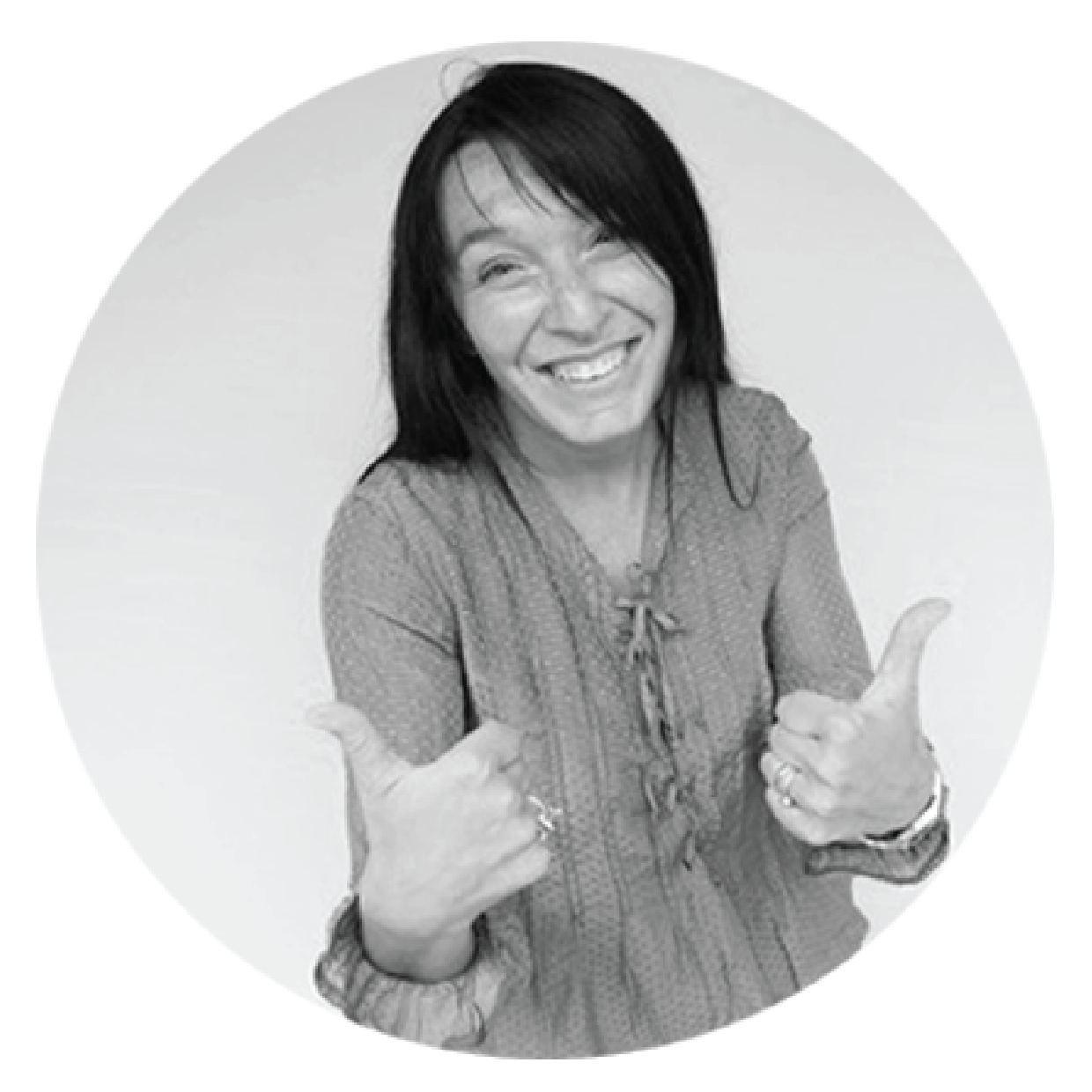
Marita Canina
Marita Canina holds a Ph.D. in Industrial Design. She is Associate Professor at the Department and School of Design at Politecnico di Milano, where she is also Scientific Director of the IDEActivity Center, a research network and a center of Excellence in Creativity and Design within the Design Department of Politecnico di Milano. She founded IDEActivity in 2013 to give value to all aspects of creativity, promoting innovation through design, as well as to activate and re-enforce all phases of the “creative process” within any given context. IDEActivity combines research in design, studies on creativity and co-design dynamics to offer organisations tools and methods capable of fostering and activating the creative approach that facilitates innovation processes through design. Since 2015, IDEActivity is investigating the impact of the digital transition on creative abilities at different stages of the design process experimenting with new approaches based on design thinking. She coordinates researches funded by the European Community and other national and international organizations, including the latest Horizon Europe MUSAE: a human-centred factory for a future technological sustainable development driven by arts (2022-2025) aiming to set up the MUSAE Factory Model based on the Design Future Art-driven method to be included in the (E)DIHs to strategically guide digital technology innovation and address future challenges in the food domain to improve people and planet wellbeing, the Erasmus+ “Digital Creativity for developing Digital Maturity future skills” (2020-2023), aiming to implement and apply a human-centred design model to strategically guide the ongoing process of digital evolution for achieving Digital Maturity through people creative enhancement and EC project "Digital Do-It-Yourself" (2015-2017), which analyzed the phenomenon of social innovation enabled by the use of digital tools. Since 2008, she has been teaching several Design School courses applying creativity to the human-centred approach (HCD) and Design Thinking (DT) method. She carries out designing and learning activities within teaching programs for SMEs, Public Administrations and Organizations always based on the blend of creativity, HCD and DT. In 2006 she was PostDoc Associate at the Massachusetts Institute of Technology (MIT), where she contributed to a wearable technology research program for an EVA spacesuit (Bio-suit) working on the Line of Non-Extension theory developed by Iberall. She's author of several international publications on creativity education and design thinking.
Mail: marita.canina@polimi.it Social: LinkedIN Web: Ideactivity
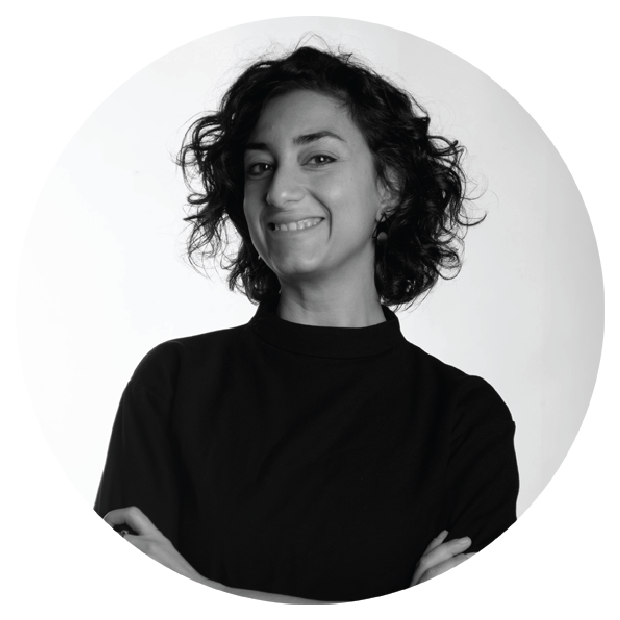
Carmen Bruno
Ph.D. in Design. Researcher at Department of Design, Politecnico di Milano. Her research focuses on investigating the new opportunities for creative empowerment opened by digital technologies, developing methods to enhance the human factors of creativity within the design process. Since 2016, she investigates how digital technologies are influencing and augmenting the cognitive, motivational, and social dimensions of the creative design process, identifying new stimuli and technological tools that support designers and non-designers in expressing their creative potential. In her work, she merges a human-centred perspective, design thinking and co-design methodologies to facilitate radical innovation. She is a design researcher and operational manager at IDEActivity Center, whose main research aim is to develop creativity-driven methodologies to strengthen innovation processes in different field of application. In IDEActivity she took part as researcher in EU project H2020 “Digital Do-It-Yourself” and as Project Manager in the Erasmus+ “Digital Creativity for developing Digital Maturity future skills”, developing methods to transfer a strategic and design approach to the application of digital technologies. She also collaborated on national projects and with relevant companies for designing and facilitating collaborative workshops for innovation development. She is author of the book “Creativity in the Design Process” edited by Springer and co-author of many articles, scientific papers and publications on books and magazines. She is professor and Design Thinking trainer at the School of Design, Ph.D School and Poli.Design at Politecnico di Milano.
Mail: carmen.bruno@polimi.it Social: LinkedIN
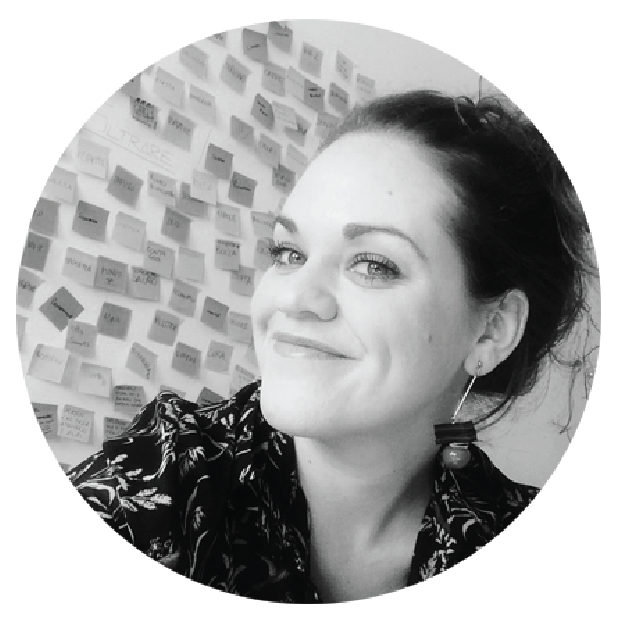
Daniela Amandolese
Daniela Amandolese is member of Materially’s EU Project team, developed her expertise during her former activity as Innovation Research and Library Manager in Material ConneXion Italia. Adjunct Professor at Politecnico di Milano (course of Industrial Design) member of the Development Team of the Master TemporaryCircular Architecture IUAV of Venice for which she is visiting professor (courses Eco Materials and Trend Research). She attended the higher education course in Jewellery Design at Poli.design in Milan and then she attended a Master Degree Course in Industrial Design at Polytechnic School (with a thesis focused on co-design tools). Then she collaborated for a couple of years with the Politecnico di Milano as a researcher in the field of innovative materials and technology transfer, in the same years she co-founded the Visibilio Design studio based in Milan collaborating with companies such as Luxottica, Somfy Group, Vismaravetro.
Mail: daniela.amandolese@polimi.it Social: LinkedIN
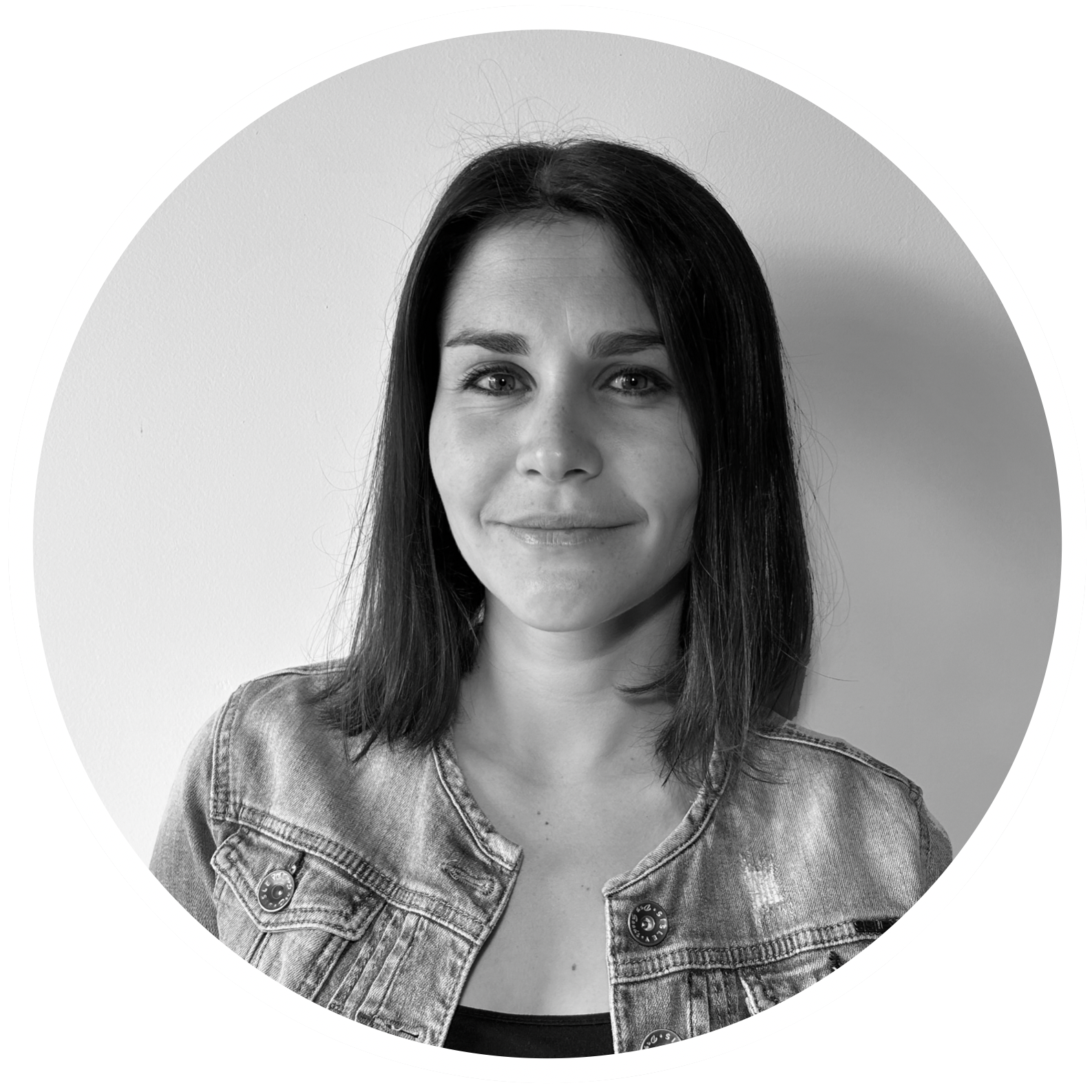
Eva Monestier
PhD student in Design. She is a research fellow at Politecnico di Milano’s IDEActivity Center where she is currently involved in two European projects: Digital Creativity for developing Digital Maturity future skills (DC4DM) and MUSAE. She has a background in Integrated Product Design and gained experience in research working at IDEActivity Center and at Digital Society School, a research center within the Hogeschool van Amsterdam (Amsterdam’s University of Applied Sciences) that seeks to assess the impact of technology on society and shape preferable future scenarios for all. Through the lens of Design Futures, her PhD research aims at investigating how Post-Anthropocene is impacting the creative process.
Mail: eva.monestier@polimi.it Social: LinkedIN
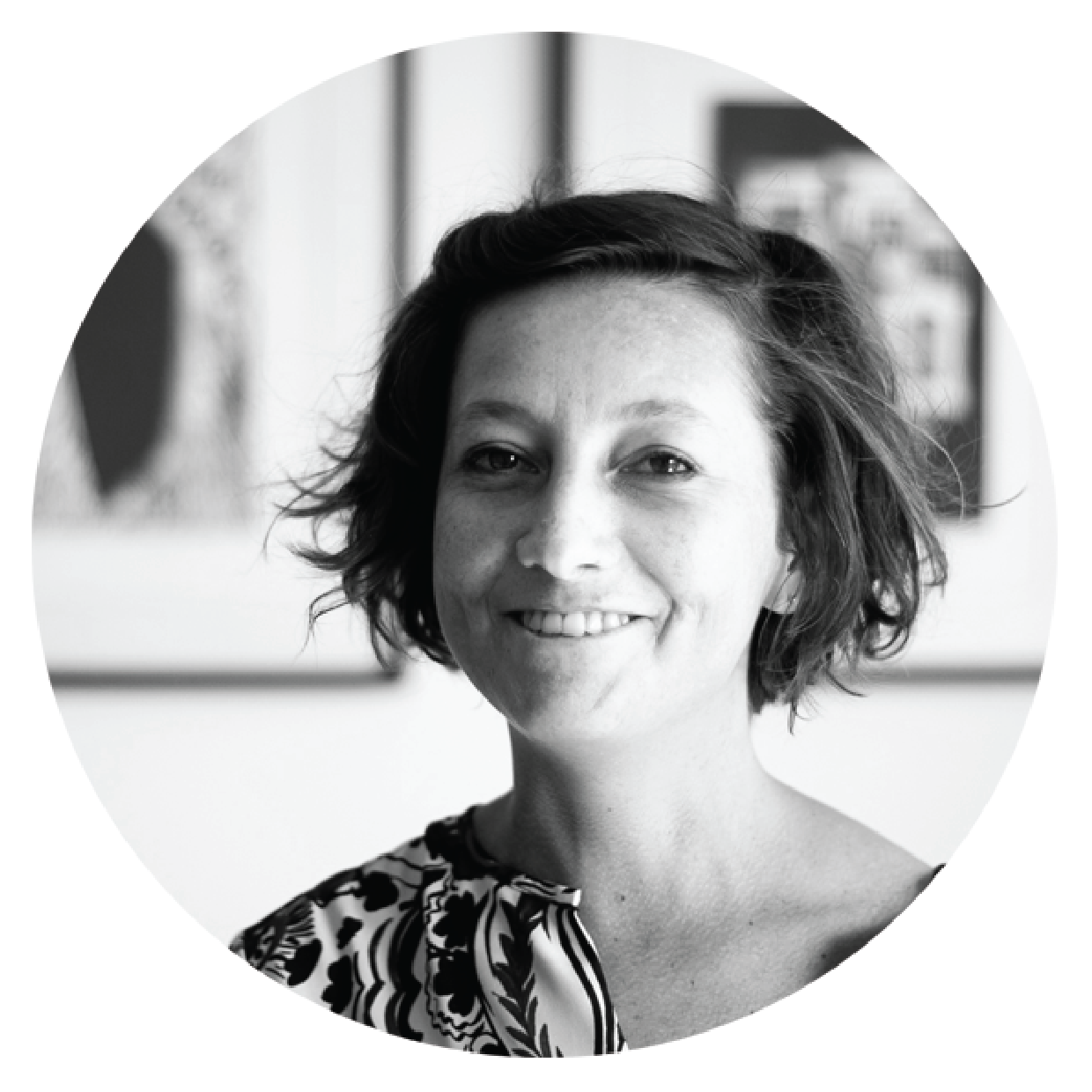
Valentina Vezzani
Valentina Vezzani has got a PhD in Design, and a MSc in Service Design. She is Assistant Professor in Design at University of Madeira and co-founder of Paco Design Collaborative. Her research and teaching interests are in the field of strategic design, service design, sustainable development, social innovation and collaborative processes and tools.
Mail: vvezzani@staff.uma.pt Social: LinkedIN
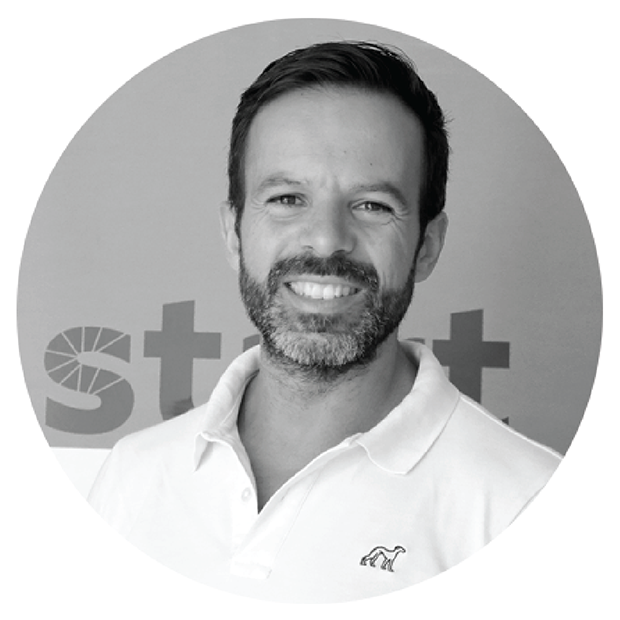
André Nobrega
Graduated as Land Surveyor and Geometrician at Professional School for Geographic Sciences in 2005, and certified CrossFit Level 1 Trainer (CF-L1) in 2014. From 2005 to 2007 worked at Santa Cruz City Hall as a Land Surveyor with responsibilities in all public constructions under that Public Institution. Since 2007 André Sotero A. Nóbrega works at Startup Madeira as a Project Assistant providing support in the operationalization of entrepreneurship, technology, Digital Transformation and innovation projects and events. During this time André has developed skills on social media and basic Graphic Design to support all ongoing projects at Startup Madeira.
Mail: andre.nobrega@startupmadeira.eu Social: LinkedIN
Contact details
If you have any enquiries about the course or if you need technical assistance please contact pok@polimi.it. For further information, see FAQ page.